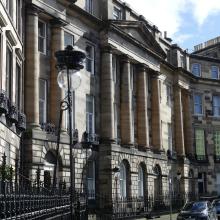
March 2024. A pleasant spring afternoon in Moray Place. A hint of peat smoke in the air. The vaguest scent of sewage drifting from the Water of Leith below.
I wait outwith a southern entrance to the central garden to meet a man I know only as ‘The Convenor’. He is an office bearer in one of Edinburgh’s oldest and most exclusive private discutentative associations: the Quinquaginta Club.
After 20 minutes, a tall senior of rigid bearing approaches from within and unlocks the gate. He is immaculately dressed in bottle-green cords, Church’s brogues and a knee-length, double-breasted camel overcoat.
The Convenor is courteous and soft-spoken. In his voice I detect the ghost of a Glenalmond College accent. He swings his ferruled cane at a cat to amuse it.
Sometimes he smiles in mid-sentence. I have the sense that he senses some trivial shortcomings of mine which he is too polite to point out. He leads me to a bench. He declines to be photographed. We sit.
The reason I have been summoned to this exquisite New Town oasis is that the Quinquaginta’s Colloquium (assembled body) will meet in April to decide whether to extend membership to hitherto inadmissible locals for the first time in over 80 years.
It is felt, the Convenor explains, that, as an inhabitant of a neighbouring ‘parish’, I may be trusted to report this development in more sober terms than journalists from the mainstream ‘class-war-obsessed’ national press.
Intrigued and, I confess, a little flattered, I agree to the proposal.
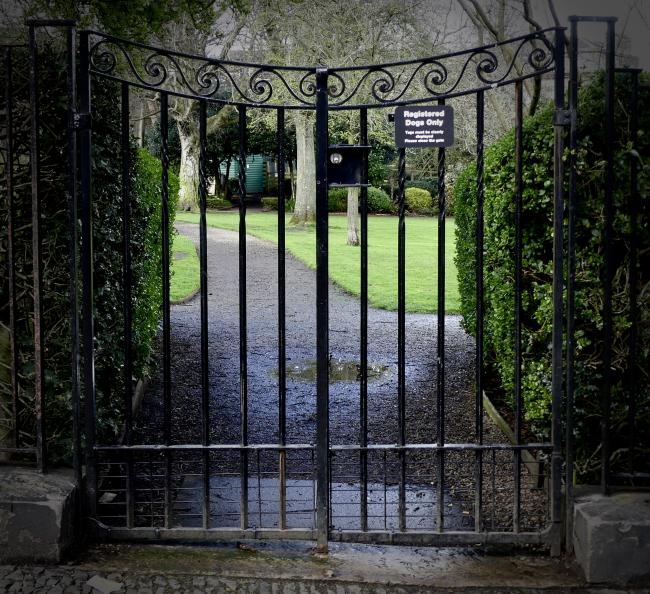
A history of change
We begin with a history lesson. At its inception in 1827 by Francis Stuart, 10th Earl of Moray, membership of the Quinquaginta Club was restricted to the 50 (male) property owners then living in Moray Place. That number remains the theoretical maximum to this day, although nowhere near so many have ever been admitted or sat in colloquium at one time.
Over the years, denizens of Randolph Crescent, Great Stuart Street and Ainslie Place have become eligible to join. Soon, though, a further relaxation of the rules could permit ‘appropriate persons’ living as far afield as Forres Street, Darnaway Street and Doune Terrace to participate in the Club’s in-camera proceedings.
‘Overall, the tone of individuals has certainly changed in Moray Place since Margaret Thatcher's shake-up of the United Kingdom', opines The Convenor. ‘Nowadays, we see fewer Daimlers and Defenders. More Cayennes and Purosangues. Metaphorically.'
In some corners of the Western New Town, such shifts are regretted.
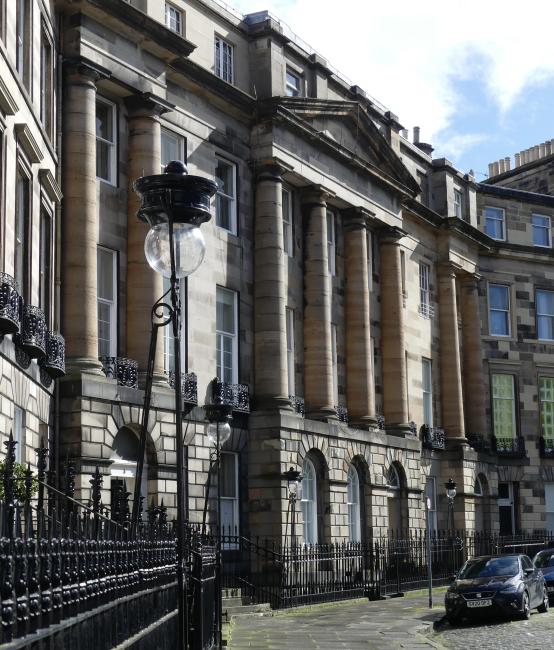
In search of quality
‘”The Q” – its people, I mean – has always been about quality and patient integrity. To secure the right sort going forward, we find ourselves obliged to cast our geographic net more widely than before. Hence the mooted change in rules.’
Membership fees for the Club are rumoured to be in the region of £75k per year, for which those whom the teenaged Robert Louis Stevenson once termed ‘The Favoured Few’ enjoy undisclosed privileges and ceremonial dinners twice a year.
‘What about the fees?’ I ask. ‘Are they not exclusive?’
The Convenor is quick to correct me. ‘For reasons of confidentiality, we never discuss that sort of thing in public. But let us be clear: money is not the issue. Most of our members tend to be comfortably off, but not all are as comfortable as others, or as uncomfortable as the apparently comfortable but not entirely so population of places such as India Street.’
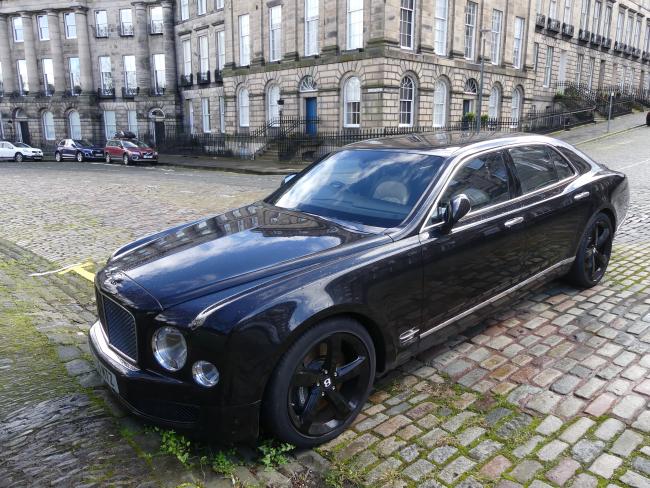
Modest surroundings
‘Our colloquia may be rather splendid affairs,’ he continues. ‘Hospitality. Congeniality. That sort of thing. But our most important work occurs elsewhere and at other times in far more modest surroundings. Serious conversations often lasting months. Opinions exchanged. Policies determined. By those who really understand.’
‘Understand what?’
‘Everything, essentially’
‘About where?’
‘Everywhere.’
‘Meaning?’
‘Wherever the Colloquium prefers to consider: Edinburgh, of course, but there are no boundaries.’
I try a new tack.
‘How many people currently belong to The Q?’
‘That sort of topic is very much an internal Club matter, and in the interests of openness and fairness for all members we do not discuss Club matters with those who are not members of the Club.
‘Let us just say that we have never had more than 21 (excluding the Master) since we began, nor have we ever had fewer than half that number including the Master and/or his Depute except during a deviziandum.’
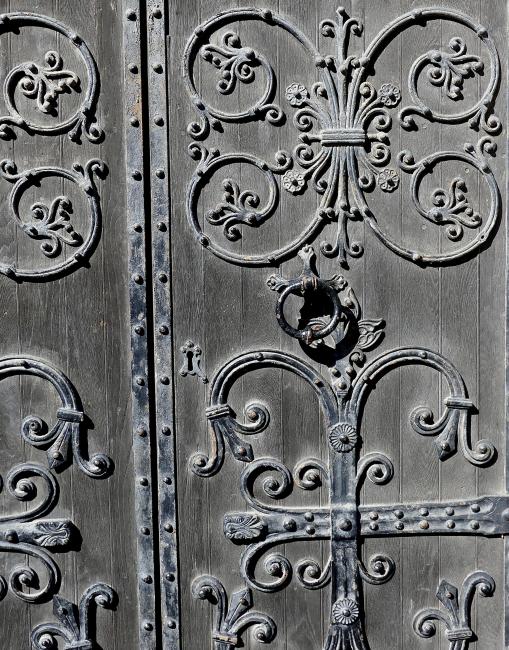
No barriers
I am struggling to make progress.
‘So, what sort of people is the Club looking for – aristocrats, bankers, politicians?’
‘Nothing so elitist. They could be absolutely anyone. There are no barriers. But one instinctively knows when one meets a right’un for the first time. It has never been about blue blood or education or socio-economic status or mere merit. We don’t admit members of the Royal Family or the Royal Company of Archers, for example, or people who’ve moved in from Heriot Row.’
‘What’s wrong with people from Heriot Row?’
‘Nothing at all. Charming, some of them. One just has a feeling. Too long among judges. Too long too close to the Eastern New Town.’
‘Then what characteristics does the Q seek in new members?’
‘It is impossible to define. I suppose a certain tone. Discretion. A willingness to exert influence for good without drawing attention to oneself.’
‘Whose good?’
‘We could discuss that all day, if that were the sort of thing we chose to discuss.’
‘Can women become members? Can people of colour? What about Catholics and LGTBQ+ folk and media types and Americans?’
‘These again are Club matters. If you were to become a member, then you would of course be absolutely entitled to know. There is no problem about that. We are all about transparency.’
I pause for a moment to study my notes.
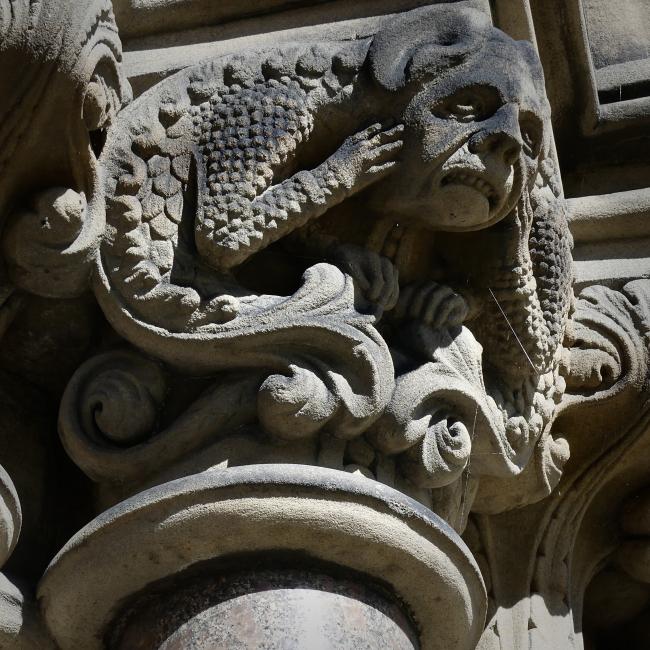
Adapting to the times
‘So, what is it that the Club actually does? What is the point of it?’
‘Its point is to keep on doing what it has always done. And to do it well. Better even, because in today’s world one cannot simply stand still. We strive constantly to improve remaining as we were. Edinburgh would not be where it was without the Quinquaginta.’
I find myself becoming confused.
‘How would one go about applying for membership?’
‘One would not. First you would be observed at a distance, then, unobserved, at close quarter. Like hunting elephant. Next you would be sounded confidentially, then assessed against the strict criteria laid down in our Articles of Assembly. If the Colloquium found you to be a good fit, perhaps you would be encouraged to enquire about joining. If there were a vacancy. Or not. It very much depends.’
‘Is there a vacancy just now?’
‘Vacancies come and go.’
An hour has passed since we began, and I feel I have learned almost nothing. A soft sleet has begun falling.
‘Imagine,’ I say, ‘that I have moved into a little flat in Darnaway Street.’
‘Are there such things?’
‘On the basis of our chat this afternoon, how likely is it that I shall be observed and approached about potential membership?’
‘The very fact that you have posed such a question suggests that you divine the framework of a possible response.’
‘Does it?’
The Convenor nods and appraises some shivering tit.
‘Do you think there are many people keen to sign up for the Quinquaginta Club?’
‘Undoubtedly. More than we have room for. There has always been a queue.’
We sit in silence for a while, regarding the weather. At last, my host indicates that our conversation has come to an end. He takes my elbow and escorts me gently back to the gate. I head east towards barbarian Spurtleshire. He remains in the Garden, watching me from cover.
I turn and wave farewell. The Convenor does not wave back.—AM
The formal Colloquium of the Quinquaginta Club will convene in the Mora Hall on 17 April at 7.45pm. All members of the public are welcome to attend by invitation only.


